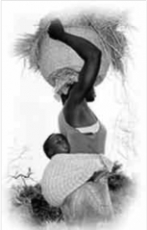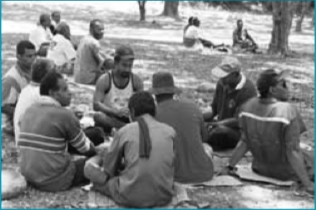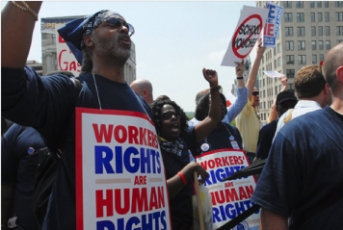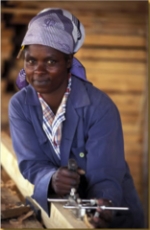Statement-International Independent Commission of Inquiry- the Impact of the Brumadinho Dam Collapse
For Statement in Portuguese, click on Reports tab at the top of this page
Earlier this year, unions representing workers at the Vale Córrego do Feijão iron mine (SITICOP MG, Sindicato Metabase Brumadinho and Rede Nacional de Barragens from ICM) reached out to the International Commission for Labor Rights (ICLR) for assistance in addressing the impact of the dam collapse in Brumadinho, Minas Gerais. The ICLR contacted several organizations of human rights attorneys and with their support and assistance, created the International Independent Commission of Inquiry into the Impact of the Brumadinho Dam Collapse.
The focus of the inquiry is on the consequences of the dam collapse and ways to prevent future dam collapses.
The Independent Commission began its work on July 27, 2019. In the days since we arrived, we have taken the testimony of many people impacted by the dam collapse. This includes family members of workers killed; family members of community residents killed; workers and community members who survived the event; indigenous people; leaders and members of unions and religious organizations and social movements; and public officials. We visited the community of Córrego do Feijão, the community most directly impacted by the dam collapse. We testified for the Committee of Parliamentary Inquiry (CPI) of the Minas Gerais legislature and spoke with the rapporteur of the CPI for the federal Chamber of Deputies.
We heard from many stakeholders that the dam collapse was predictable and preventable. We were told that there were many signs that pointed toward the collapse but were not acted upon adequately to prevent the tragedy from occurring. A predictable and preventable dam collapse cannot be called an “accident”.
On January 25th, the dam collapse killed 247 people, and 23 more are considered missing, for 270 people in total. We heard testimony that January 25th was only the beginning of what will be a very long period of damage to families, to communities, and to the ecology and economy of the region.
And we heard that fear that other dams will collapse grips tens of thousands of residents of Minas Gerais, and it is vitally important to take steps promptly to eliminate this threat.
We make the following preliminary findings and recommendations, implementation of which must be centered on the needs of the affected communities.
Our findings and recommendations are guided by four principles: Justice, Independence, Transparency, and Prevention and Deterrence.
1. Justice
The workers and community residents killed by this event did not cause it. Nor did the workers and community residents who survived.
There is no question that Vale, the owner of the mine, has responsibility for the consequences of this event. There are investigations underway that may determine that other corporations share responsibility. The causes of the dam collapse and the apportionment of responsibility are not the focus of this inquiry.
In order to obtain justice, Vale and other responsible parties must completely indemnify all victims of this event. This includes:
• families of people killed
• survivors of the event, including direct and outsourced workers that survived and have been mistreated by Vale
• people whose ways of life were disrupted or damaged by the event
• people whose economic well-being was disrupted or damaged by the event
The survivors and the communities must be treated with dignity and respect. Unfortunately, from the testimonies we heard, Vale has failed in this regard. A common refrain from the impacted people and communities was that Vale never provided information about the loss of their loved ones, or even contacted them, that no one from Vale management expressed any form of condolence to the families’ for their loss, that the families were never allowed to express their pain to anyone from Vale, that workers who had devoted their lives to Vale and were proud to wear the Vale shirt were disrespected by Vale, that they only met with families after six months, and only after protests from families of survivors did Vale agree to provide some form of apology.
In addition, Vale and other responsible parties must pay for all necessary environmental remediation and other costs of the event.
Finally, these payments must be made promptly. Justice delayed is justice denied.
2. Independence
By definition, Vale and other responsible parties have a conflict of interest. It is in the interest of their shareholders to limit their costs. Decisions that must be made independently of Vale include:
• Who is indemnified because they suffered damage
• The amount of indemnification
• The necessity, type and extent of environmental clean-up
In addition, studies done to measure the extent and effect of contamination on the environment must be made by scientists independent of Vale, although Vale and other responsible parties must bear all of these costs.
3. Transparency
The dam collapse is a public event potentially affecting more than 100,000 people from all parts of civil society. For its consequences to be addressed fairly, it is important that the response be open for all to see and evaluate. This means that all offers, calculations, studies, settlements and other activities be done transparently, with the details made public.
4. Prevention and Deterrence
This is the second dam collapse in Minas involving a Vale dam in 3 years. There are many more similar dams in Minas, and it is imperative that steps are taken immediately to prevent future collapses.
First, a thorough independent investigation into the Brumadinho dam collapse must be completed, so that the lessons can be applied to prevent the same tragedy from re-occurring.
Second, all dams in Minas must be enrolled in an ongoing independent auditing program to monitor their structural integrity and make any repairs necessary.
All laws that require monitoring of other dams, especially upstream dams, must be strictly enforced.
Any gaps in Brazilian Law which allow any safety issues to be self-regulated must be filled by appropriate legislation.
In addition, however, a program of enhanced deterrence is required to ensure that mine owners take their responsibility for protecting their workers and residents of communities near their dams. Simply paying the total costs necessary to achieve justice is not sufficient. In the event of a dam collapse, these costs are their responsibility, and there is no debate on this subject. But too many corporations build those into their operating costs. In this deadly calculus, they estimate that paying the costs of a dam collapse are less than the costs of keeping all their dams safe. This is not acceptable. The best way to prevent this is to impose a very large financial penalty on a mine owner whose dam collapses, to be paid in addition to bearing the costs of achieving justice. To have the desired effect, this penalty should be proportional to the size of the corporation, not the costs of the dam collapse.
A second effective approach to preventing dam collapses is to allow criminal penalties for members of corporate Boards of Directors whose firms’ activities kill or damage humans or the environment. It is the responsibility of directors to know what their firms are doing and to ensure that their firms’ behavior is ethical. To apply criminal penalties to boards, it should not be a requirement to show actual knowledge of the criminal behavior. This approach is now being taken in Australia, New Zealand and other countries.
This is our preliminary statement. We will prepare a full report in Portuguese and English and submit it to all relevant governmental bodies and make to available to stakeholders.
This Commission is supported by International Lawyers Assisting Workers (ILAW), the Association of Labour Lawyers of Latin America (ALAL), the Canadian Association of Labour Lawyers (CALL) and the International Association of Democratic Lawyers (IADL).




